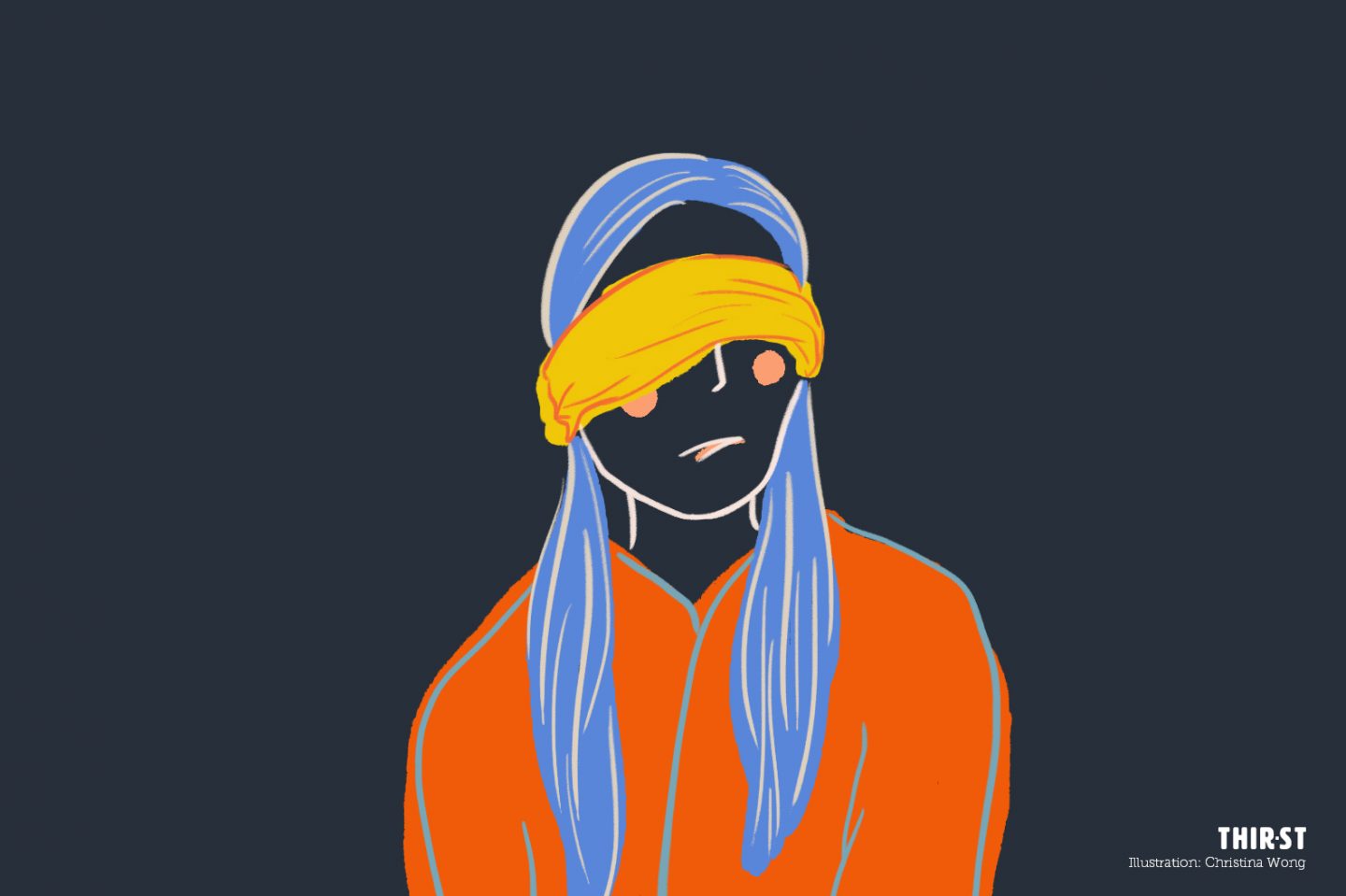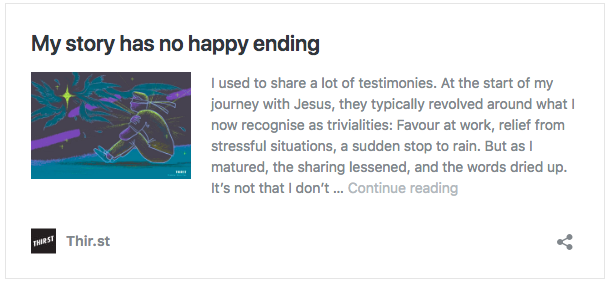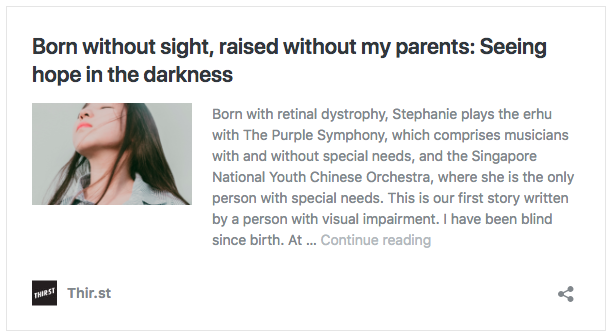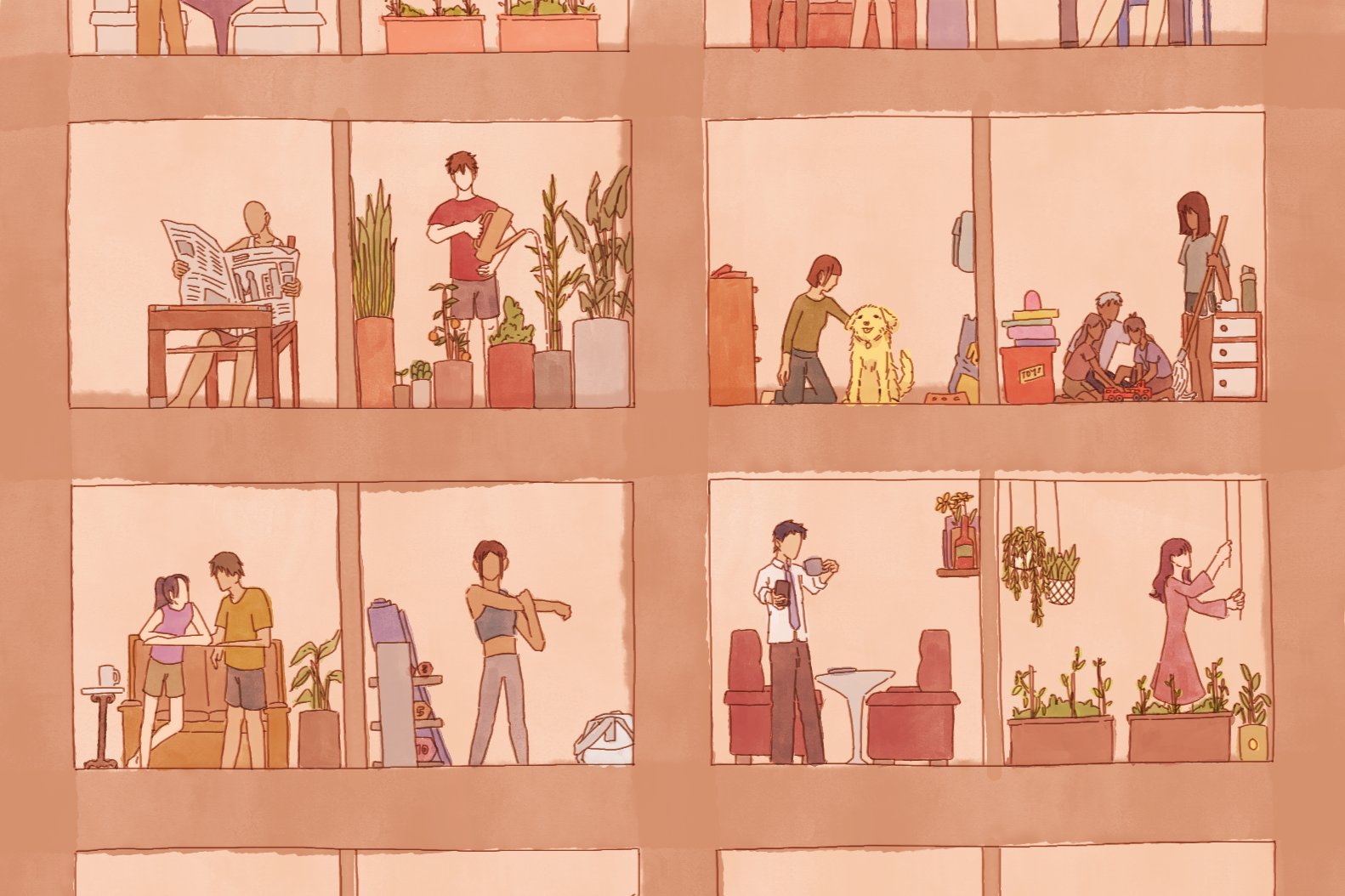The challenge – to build a cardboard version of one of Kuala Lumpur’s iconic structures – came with the usual church camp caveats.
In this case, several members of the team had to sacrifice one of their senses, by being blindfolded or gagged with masking-tape. To succeed, however, every team member had to make some sort of contribution to the building. I think the point was something to do with obstacles and perseverance … but I’m not exactly sure.
As soon as my team blindfolded me, I felt something change. Some of it had to do with the tasks they assigned me, like being the human measuring stick for the tower’s height, or creasing large sheets of cardboard they placed in my hands. Useful, for sure, and well-meaning in their sympathy, but relatively menial. Few of the group knew, however, that I’m no stranger to visual impairment.
In fact, I am going blind.
But after several minutes of struggling over an issue of structural integrity, I found myself guiding them towards a solution that had come upon me. I couldn’t see what they were building, but I could visualise it in my head thanks to my years of experience working in my mind. I had a possible fix, but it took a lot of literal blind gesturing to convince them that my plan might work, and how to put it into practice.
I realised that when the blindfold came around my head, it not only limited my sight, but changed the way others perceived me. And it made me think, do we really see those around us, especially those “in need”, for who they really are?
DON’T BE TOO QUICK TO LABEL
As Christians, we know we’re not supposed to judge others by their outward appearance.
But let’s not forget that even the prophet Samuel – who had no lack for piety – was reminded by God that he was looking at outermost qualities instead of the heart (1 Samuel 16:7). Similarly, Timothy found himself on the other end of the stick as he ministered to the nascent church, and was encouraged by Paul to let his innermost virtues speak for themselves (1 Timothy 4:12).
Have we improved since then? Perhaps, perhaps not. In general, I’d like to think that we as Christians do our best to love those around us, irrespective of whether their values align with ours or not.
Yet I still hear of short-term mission teams getting excited about how they’re going to “be a blessing” to churches in poorer, less connected areas, or to the widows and orphans in our own neighbourhood – when we city-slickers are often the ones much more blessed and made aware of the paucity of our own spirits.
I know because I’ve been one of them. I’ve seen great faith and conviction in those who on the surface have so much less – yet hold in their hearts so much more.
… do we really see those around us, especially those “in need”, for who they really are?
I think part of the problem stems from our natural tendency to label people. We put people into boxes: “poor”, “handicapped”, “unbelievers”, “Christians” … but with those labels come assumptions about what people can do, why they do it, and who they are.
And while those labels may sometimes be accurate, they inevitably cause us to overlook the deeper, truer potential of those around us.
DON’T BE TOO QUICK TO ASSUME
When we seek to see what’s beneath the surface, we’re often surprised, sometimes astonished – but always encouraged.
But it’s not easy to do so. From my limited experience, I’ve found myself frequently going through three mental processes that help me to break down my preconceptions and look deeper.
First, I try to remind myself that everyone – no matter how poor, morally ugly or simply different – was created in our Lord’s image. We are all fearfully and wonderfully made (Psalm 139:14) without exception. And what may look small or grubby to our humanly eyes, is often beautiful in God’s all-seeing vision. Just ask the woman with the two copper coins in Mark 12.
Second, we can never know what a man can do until he’s done it. Nobody would’ve thought Paul, with his zeal for the blood of the early Christians, would end up being the one to lead the charge to share the Good News with those he had once murdered – least of all the man who helped set him on his way (Acts 9).
We all have our prejudices based on people’s pasts or presents – but, like Ananias, we can put them aside and focus on bringing out the best that God sees in them. To do otherwise could cause us to miss our calling.
If there’s one thing we all have in common, it’s that we have all fallen short of the glory of God (Romans 3:23) – which should be enough to sharply correct any superiority or condescension we might feel.
Finally – and this is hard – I reflect on who I am: a sinner, morally destitute, still plagued by mistakes and faults, whose only redemptive qualities come from my Lord and Saviour Jesus Christ.
If there’s one thing we all have in common, it’s that we have all fallen short of the glory of God (Romans 3:23) – which should be enough to sharply correct any superiority or condescension we might feel. We each have something to give, but only because of what He’s given us.
There’s an anonymous poem which has a particular line that reads “He uses whom He chooses”. And He doesn’t choose according to physical, mental, or even spiritual dis/ability. He chooses based on the posture of our hearts.
I suspect the best way to fulfil that common prayer to “see what You see”, is to have the right posture first.











